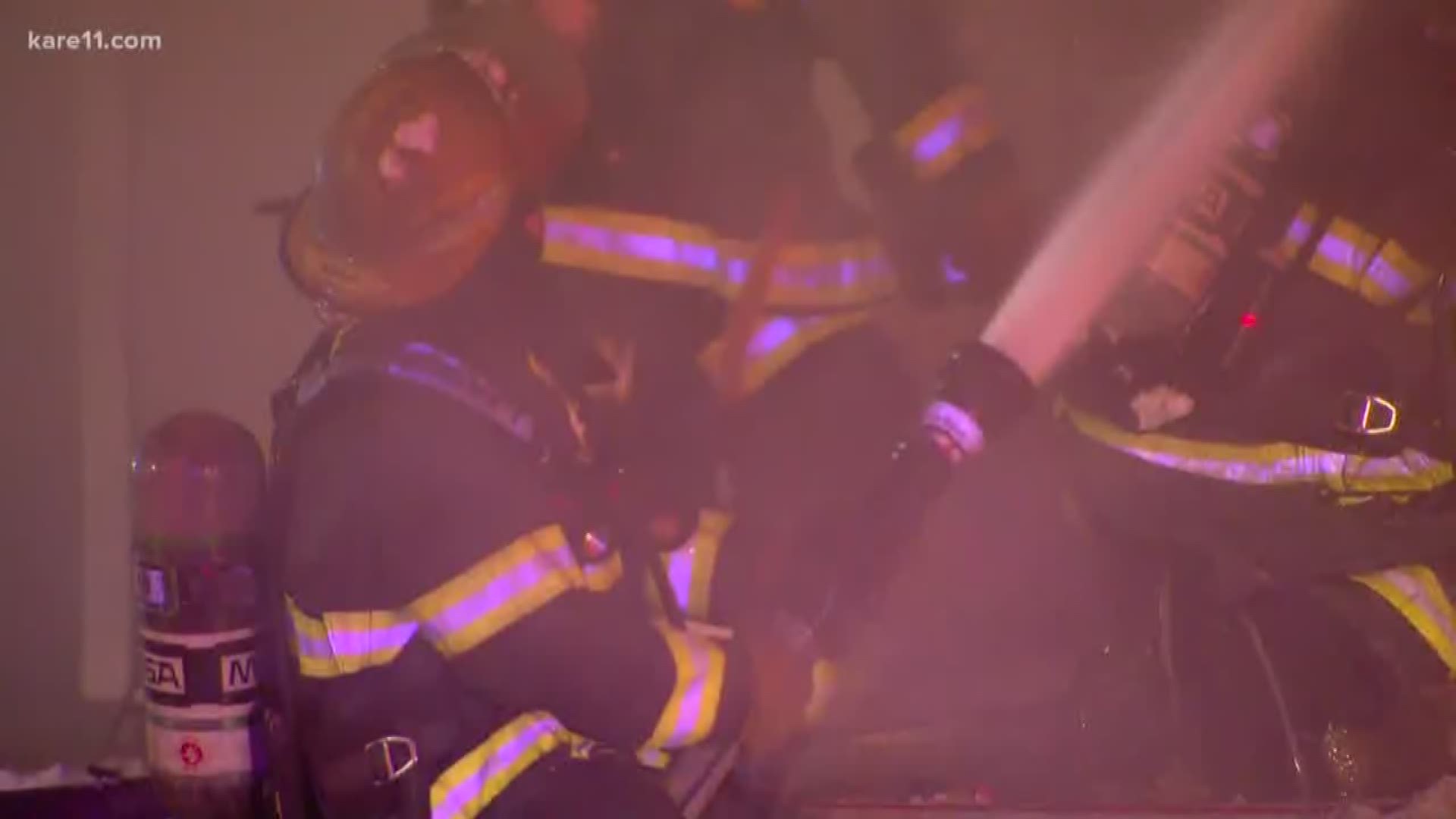ST PAUL, Minn. — In 28 years as firefighter, Duluth Fire Chief Dennis Edwards has witnessed a lot of real-life drama and genuine heroics. He's also seen the toll it takes on people in his profession.
"In those years I’ve seen way too many of my friends, my families and my colleagues suffer to cardiac disease, cancer and mental health trauma," Chief Edwards told Capitol reporters Tuesday.
"In the Minnesota fire service, we’re doing the best we can to change the outcomes of those three leading killers of firefighters, but we need help."
Edwards was one of contingent of first responders who spoke in support of the Hometown Heroes Assistance Program, which is envisioned in bills making their way through the House and Senate.
Sen. Steve Cwodzinski of Eden Prairie, who is leaving the charge in the Senate, said firefighters seem like superheroes for the work they do but are especially susceptible to chronic illnesses.
"They get cancer, they suffer from trauma and they get heart disease," Sen. Cwodzinski explained.
"The only difference is they get it at higher rates than you and I do."
The Hometown Heroes Assistance Program would provide one-time, lump-sum critical care grants of up to $30,000 for firefighters diagnosed with cancer or cardiac issues. It's meant to augment whatever health coverage they have for those maladies.
The bill also creates an Employee Assistance Program that firefighters suffering from mental health traumas can tap into for free counseling. The legislation would also pay for health awareness training for firefighters.
"We ask them to do a job that many of us would never be able to do, or willing to do," Rep. Cheryl Youakim of Hopkins, the chief author of the House version of the bill, remarked.
"They do this job without hesitation and we need to have their backs."
Lawmakers and reporters have heard much more in recent years about the health issues experienced that are unique to the profession of firefighters.
The president of the Minnesota Firefighter Initiative, George Esbensen, said that the state lags behind most others when it comes to health support for those who've chosen this career.
"Minnesota ranks 21st in population. Unfortunately, we rank 45th in our support of the Minnesota fire service, so we’re fifth from the bottom," Esbensen explained.
"This bill will go a little way towards changing that funding paradigm."
In 2018 first responders lobbied hard for a bill that would allow them to make claims through Worker's Compensation for Post-Traumatic Stress Disorder. That effort resulted in a change in the state law and the Dept. of Labor and Industry is drawing up the specifics of the rules for employers.
"There’s a downside to this rewarding career, and that is mental health issues that a lot of us face, the addiction issues that a lot of us face, the cancer and cardiac risks that a lot of us are facing," said St. Paul Fire Captain Chris Parsons, who heads Minnesota Professional Fire Fighters statewide labor organization.
If the bill becomes law it would apply to all 22,000 firefighters in the state, including full-time, part-time and volunteer firefighters.

